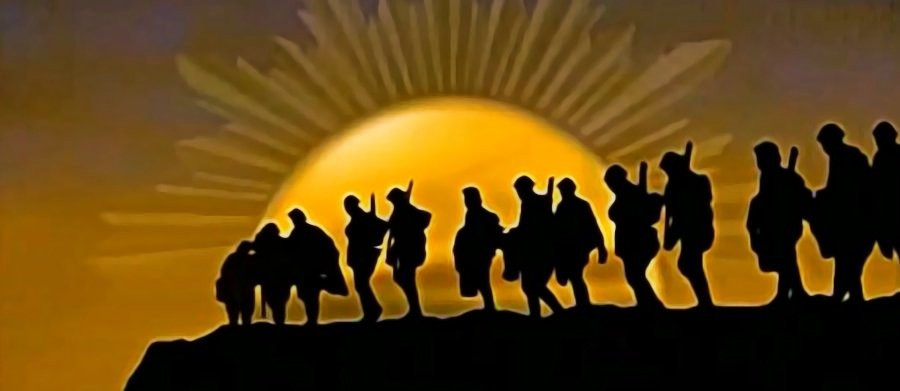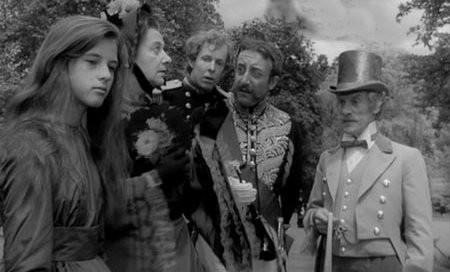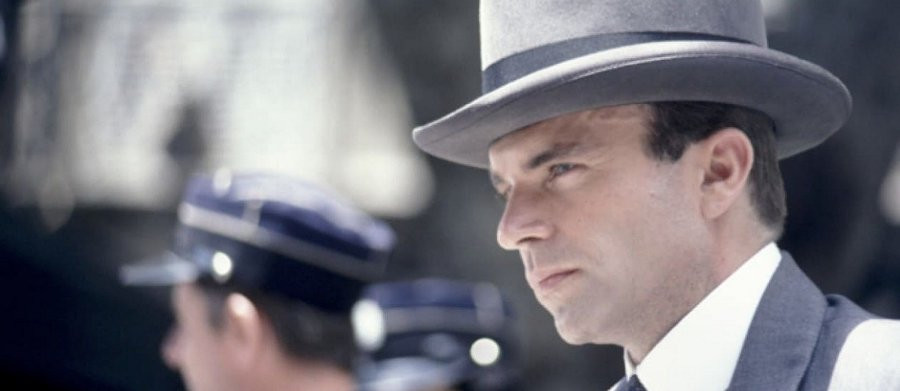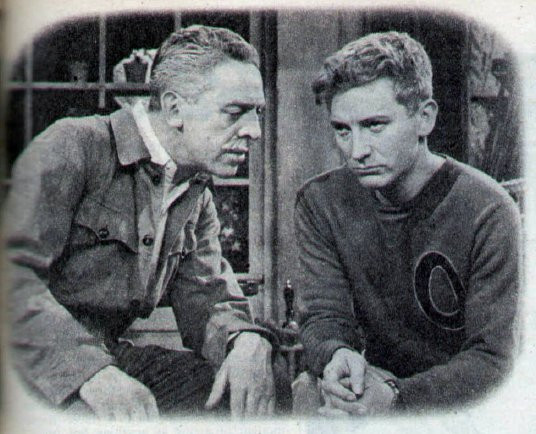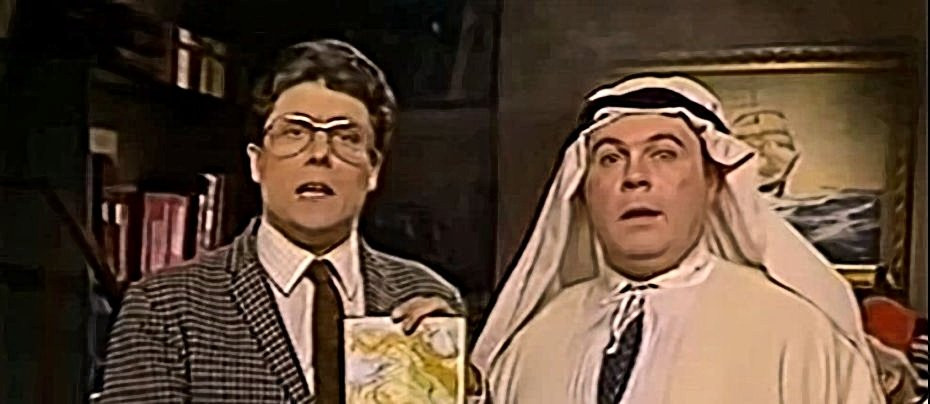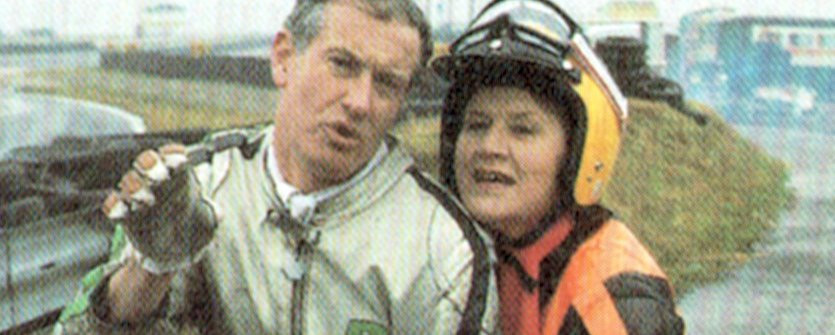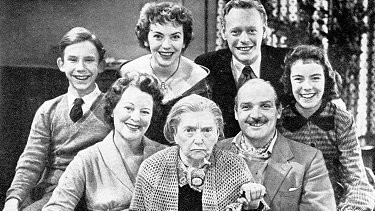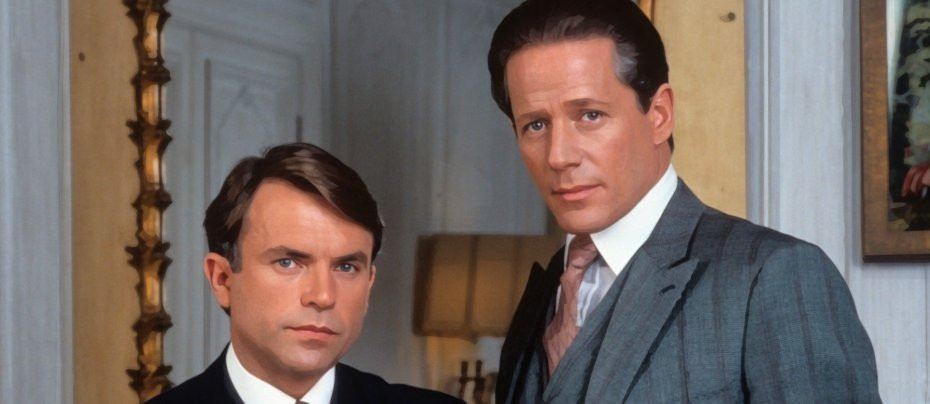
Kane & Abel
1985 - United States‘The basic premise is brilliant in its simplicity’
Review by John Winterson Richards
Whatever one thinks of Lord Archer of Weston-super-Mare, politically or personally, there is no denying his energy and drive, or that these qualities come through in his writing. Watching him working a room in person is an impressive sight even when one is fully aware of a definite superficiality, and one experiences something very similar reading his books. They are literally very hard to put down because they are designed deliberately to be that way and the fact that this artifice is obvious makes them no less compelling.
Jeffrey Archer characters are not exactly famous for their depth and complexity. Most are defined by a single trait, often taken to an extreme, that serves to drive the plot forward. They are not given to introspection because the author does not want the reader pausing to reflect. The whole point is to keep those pages turning - and they do. If he is weak on characterisation and dialogue, Archer is a Grand Master of pace and plot construction. The reader always wants to know what happens next. He has certain expectations and they are usually met, but Archer knows exactly when to throw in a twist to keep him from getting too comfortable and how to postpone gratification by putting an extra obstacle in a protagonist's way. Without these twists and obstacles, the story would become predictable and dull, but too many would make it absurd so that the reader would lose all interest. Archer has the gift of getting the balance exactly right. It seems to be an instinct, like natural rhythm, not something that can be learned or taught.
It is a tribute to Archer's storytelling that the American miniseries adaptation of Kane and Abel, the book which really took him to the top division of the international market, and which remains his best seller to this day, stays relatively close to the plot of his novel, apart from the usual necessary omissions. The miniseries in turn played no small part in cementing his global profile.
The basic premise is brilliant in its simplicity. Two men born on the same day in very different circumstances on different continents become important factors in each other's lives despite meeting, briefly, only three times (at least in the miniseries, which wisely passed over another encounter in the novel). Their names, Kane and Abel, reference Cain and Abel, the two sons of Adam in the Bible, one of whom kills the other out of envy.
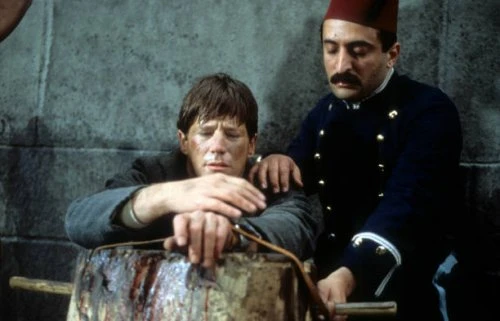
The man who becomes Abel Rosnovski starts out as a Polish peasant. He seems to get an early break, but then everything gets a lot worse for him. He manages to survive some truly horrific experiences in the Great War and the aftermath of the Russian Revolution and ends up a penniless refugee in the United States, tough and determined to succeed.
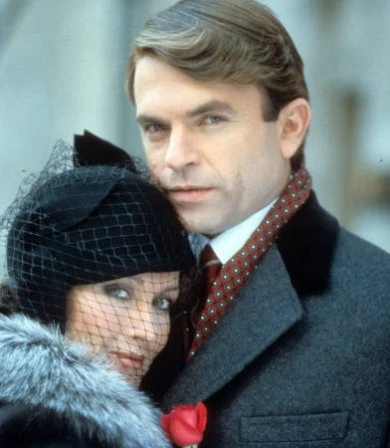
William Kane, by contrast, is born into a wealthy family of Boston bankers. Although he never wants for money, and opportunity comes easily to him in the form of a top level education and personal connections, he is not exempt from a difficult childhood and youth. He shares Abel's intense determination to be a success in his world, his focus on his work to the detriment of other aspects of life, and his iron self-discipline. It is difficult to avoid the obvious conjecture that the ambitious, hard-working Archer envisaged both men as idealised versions of himself in different situations.
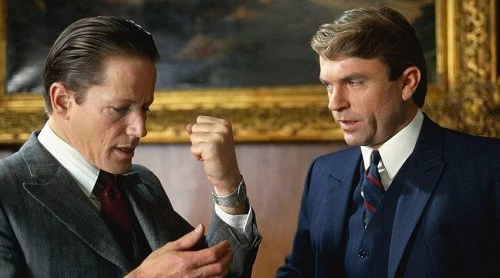
Kane is played by the versatile Sam Neill and Abel by Peter Strauss, a leading contender, with Robert Urich and Barry Bostwick, for the title of King of the Golden Age Miniseries. Both give memorable performances, and it is difficult to read or think of the book afterwards without visualising them as their characters. Neill adds a creditable Bostonian, complete with elongated vowels, to his collection of accents, and if Strauss sometimes goes over the top, that is what his part seems to demand. It was, however, stretching credibility a bit too far to have both actors playing their characters in youth, even if the miniseries timeline appears to have been elongated a little to make them older than the boys they were at that point in the novel.
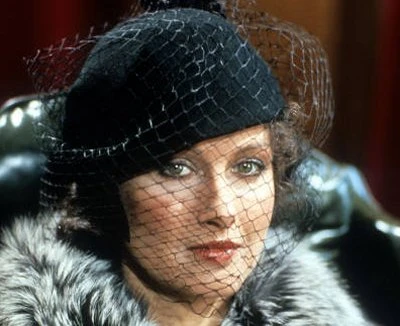
Fred Gwynne (Car 54, The Munsters) shows he can do drama as well as comedy playing a likeable Texan businessman who spots Abel's potential. Ron Silver is wholly credible as Kane's sharp lawyer. Veronica Hamel (Hill Street Blues) is suitably elegant as the widow who somehow manages to distract Kane from his accounts for a few minutes but is not really given much to do that is relevant to the plot. David Dukes is suitably sleazy as a chancer, who therefore becomes a politician, oozing his way into the lives of both Kane and Abel, a toxic link between them. At the other end of the spectrum of amiability, Vyto Ruginis brings a welcome breath of humanity as Abel's fellow refugee, right hand man, and occasional conscience.
Other familiar faces include Jill Eikenberry (L.A. Law) as a girl with a crush on Kane, Harry Groener (Buffy the Vampire Slayer) as Kane's father, Christopher Cazenove as a Polish Baron, and Kate McNeil as Abel's daughter, the apple of his eye.
That Abel happens to have a daughter and Kane a son is a pretty big spoiler in itself, but the romantic and domestic subplots in Kane & Abel are less important and less interesting than the business drama. The mechanisms by which one acquires wealth are rarely dramatic in themselves, but Archer makes them so. He had considerable experience of business by the time he took up writing to avoid bankruptcy and he has a good grasp of the details. Where most miniseries have little time for what happens between a character deciding to set up a business and then becoming very wealthy as a result, Kane & Abel takes us through the ups and downs. It emphasises the need for apparently mundane but rare qualities like the need to dedicate oneself completely to the job in hand, to be constant in looking for ways to do things better, and to keep one's nerve when everything seems to be falling apart.
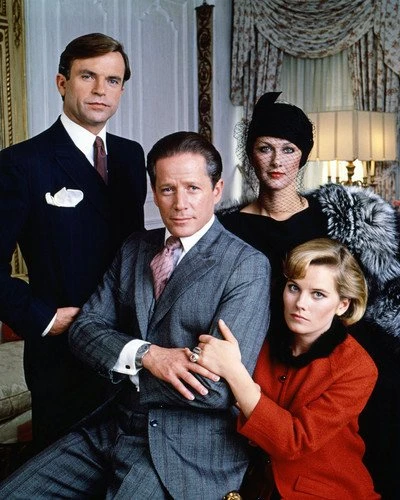
It also takes us on a brief trot through Twentieth Century history, especially in the United States, but also showing what was going on in other places, most notably Poland. There was considerable sympathy in the West for Poland, which was increasingly a symbol of resistance to Soviet rule, around the time when the novel was published and the miniseries produced. Kane & Abel, both the novel and the miniseries, therefore played a useful role in putting the sufferings of the Polish people in at least part of their historical context, something of which most Western readers and viewers were ignorant.
This gives the miniseries the epic quality to which the format often aspires but does not always achieve. It takes us through almost seven decades of the lives of two men who are powerful in every sense, whose merciless conflict, which becomes a fight for business survival, is based on a failure to communicate. Even when one sees the final twist coming, it still packs a powerful punch.
As usual with Archer, we have been manipulated, and we know we have been manipulated, and we are happy to have been manipulated, because he has taken us on an entertaining journey. He leaves us with an irony. A more philosophical writer would perhaps try to draw a moral from the story, about how whole lives, even the lives of great men who could have used them so much better, can be wasted by obsession with what is fundamentally unimportant. Archer is not such a writer, and in fact gives no indication that he even believes that. It seems that he still views Kane and Abel as great men, tragic heroes destroyed by a fatal flaw, their obsession. Or does he view that obsession as their great strength, the secret of their success? More likely he just wanted to tell a good story, and he did.
Seen this show? How do you rate it?
Seen this show? How do you rate it?
Published on October 7th, 2024. Written by Laurence Marcus for Television Heaven.


